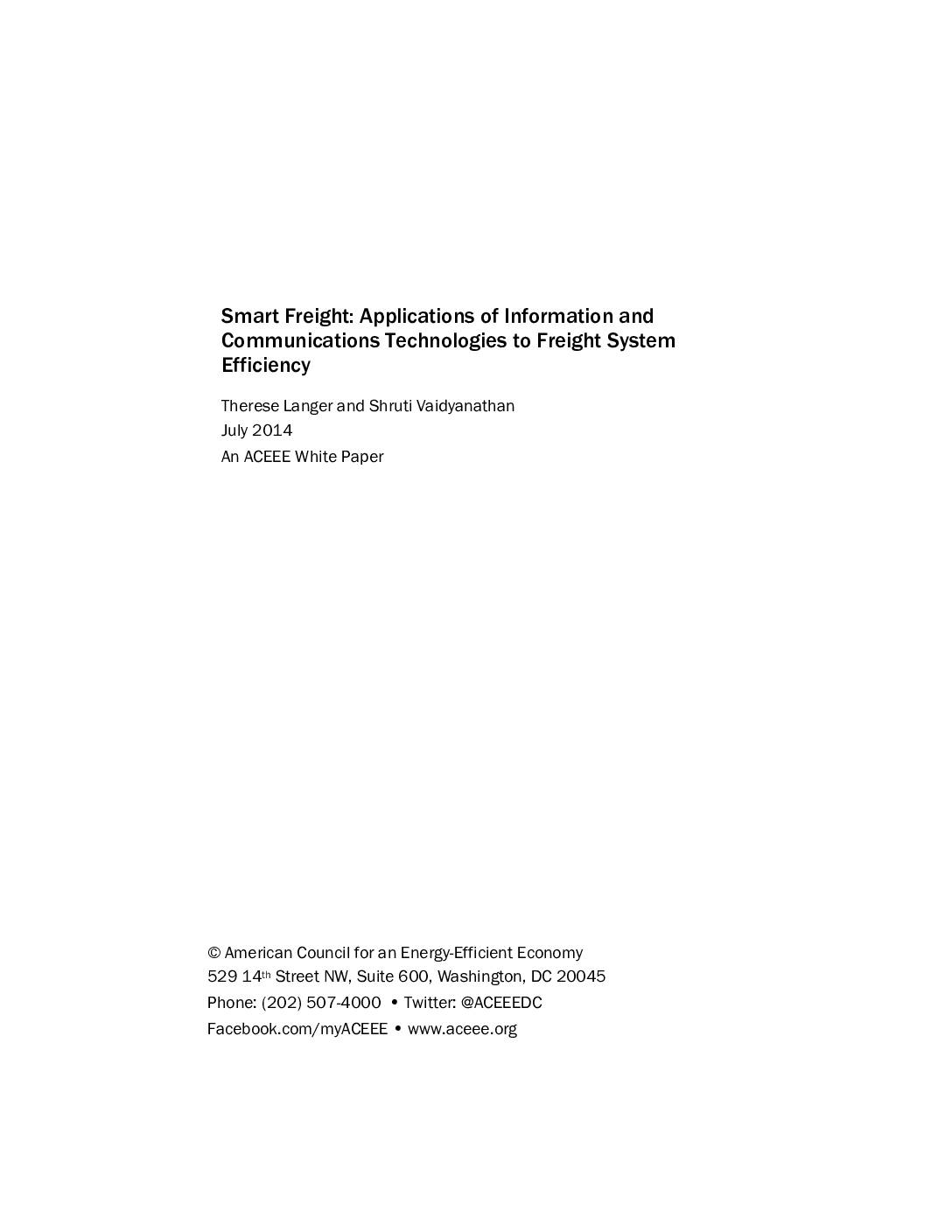Information and communications technology (ICT) can permit large energy savings in the freight transportation sector while improving speed, reliability, and security. Transportation and logistics professionals have been using ICT tools for decades, but the rapidly increasing sophistication of these technologies in the last few years has opened up energy savings opportunities far greater than those realized to date.
This paper discusses applications of ICT to save energy by improving the efficiency of freight vehicle operation, making better use of the freight network, and reducing ton-miles traveled without compromising business objectives. ICT brings the potential for effectively unlimited data collection, greatly enhanced predictive capabilities, and real-time, dynamic decision-making and implementation. Together, these new capabilities could lead to a dramatically more efficient freight system based on completely visible and accessible physical and digital networks.
The paper describes the potential of ICT and provides examples of companies who are applying various ICT-based approaches to reduce fuel use and carbon emissions without sacrificing freight performance. It concludes by identifying barriers to more widespread adoption of ICT tools and offering recommendations to overcome those barriers.
Share this

Sectors: Cross cutting, Digital, Industry, Renewables, Transport
Country / Region: Northern America, United States
Tags: climate relevant communication, energy, energy efficiency, energy savings, freight, paper production, tradable permitsKnowledge Object: Publication / Report
Published by: ACEEE
Publishing year: 2014
Author: Therese Langer, Shruti Vaidyanathan
